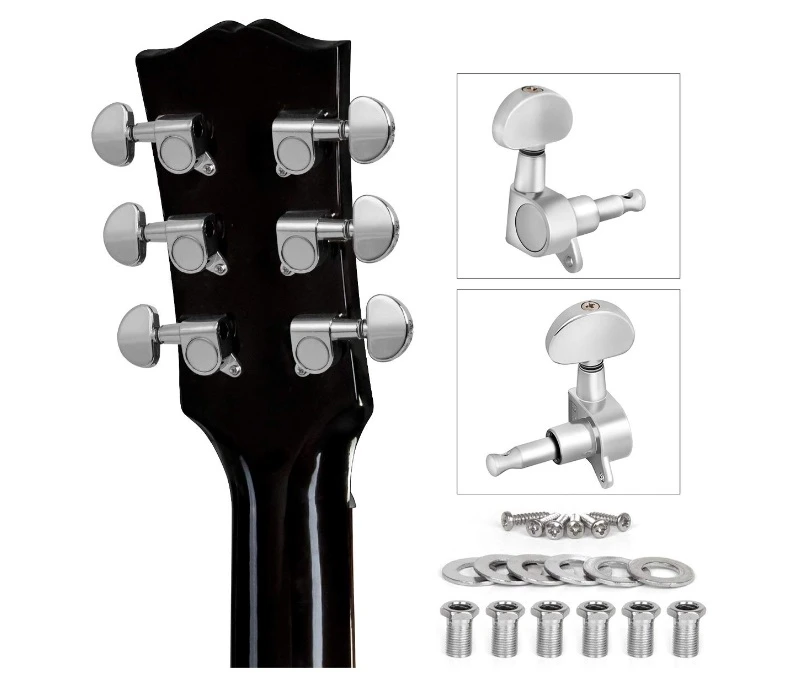Cleaning guitar strings ain’t exactly an exciting task. But hey, you have to do it anyway. After all, uncleaned strings are the number one reason for low tone and poor sound output.
Often, beginners struggle with cleaning guitar parts, including strings. They want to play and put it away. In the long run, the strings suffer from heavy dust and grime, leading to replacement.
Here are a few expert tips for quick and easy cleaning of guitar strings. But first, let’s understand how guitar strings get dirty.
Blame Your Sweat
Beginners must know that when your fingers and palm rub across the strings, they transfer a lot of oil and sweat. In turn, the dead skin gets deposited underneath the strings. With time, the strings corrode so that when you play, they seem unresponsive.
Hand Flatwound strings, compared to roundwounds, attract less oil and sweat. Flatwounds also sound a lot better and more fresh. It also doesn’t require restringing too often. Now, let’s explore some expert tips on quick and effortless cleaning of guitar strings.
Pay Attention To The Sound
The vibration of the strings determines the quality of a guitar. When your guitar strings are in good shape, they produce maximum clarity. However, when it attracts dirt and grime, the high frequencies are dampened, reducing sound (use guitar tuners to determine). Sure, replacing them works, but that’s not always an option.
Sometimes, guitar strings can last for years with regular cleaning. That’s why you should only consider replacing strings when your guitar sounds dull despite cleaning. Next, you must know the best way to clean your strings. And remember, you can’t use any cleaner for that purpose.
Stay Away from Using Household Cleaners
When it comes to cleaning, the first things that come to our mind are soaps and bleaches. However, with guitar strings, it’s never a wise call. These traditional cleaners contain harsh chemicals that can discolor and damage unfinished fretboards. That’s why you should stick to using a dedicated guitar string cleaner.
Some of the popular options include GHS Fast Fret Cleaner, which you can get from any store selling online guitar parts. White distilled vinegar is also a great option. There’s another good option if you play bass, but there’s a caveat.
Consider Boiling Strings
It sounds odd, but it’s true. Boiling bass strings is another way to do away with the dirt and grime, but there’s a catch. You shouldn’t be boiling them too many times. As a result, it can become brittle. Imagine breaking a string mid-show. Total nightmare! So, you will have to exercise extreme caution.
We recommend using the tuning peg to loosen and detach the strings. Next, boil them in water for no more than 10-12 minutes. And always use tongs to extract them from the water and lay them down for cooling.

P.S. If you’re a beginner, we do not recommend doing this. Instead, you should pay attention to cleaning the strings using a dedicated cleaner after each play.
Timely Cleaning Is The Best Option
Whether you’re performing or practicing, cleaning your guitar strings right after is always good. And you don’t need to use a cleaner every time. Take some steel wool or a moist microfiber cloth and wipe across the fretboard and the strings. You can keep a small towel handy if your hands sweat a little too much. If you’re a busy artist already, here are a few pointers.
- After each recording session or live performance, use a professional-grade string cleaner like GHS Fast Fret. It will make the strings sound better and keep you from buying new sets. It also makes the cleaning process quicker.
- When using a string cleaner, always use tape to cover the pickup.
- Place a thin microfiber cloth or towel below the strings to keep the footboard from over absorbing the cleaning liquid.
Closing Thoughts
Undeniably, timely cleaning using good quality cleaners can extend the lifespan of your guitar strings. However, you shouldn’t shy away from replacing them when absolutely needed. For instance, when they fall out of tune despite repeated cleaning,. Or when you change the tensions using a different string gauge and composition.








